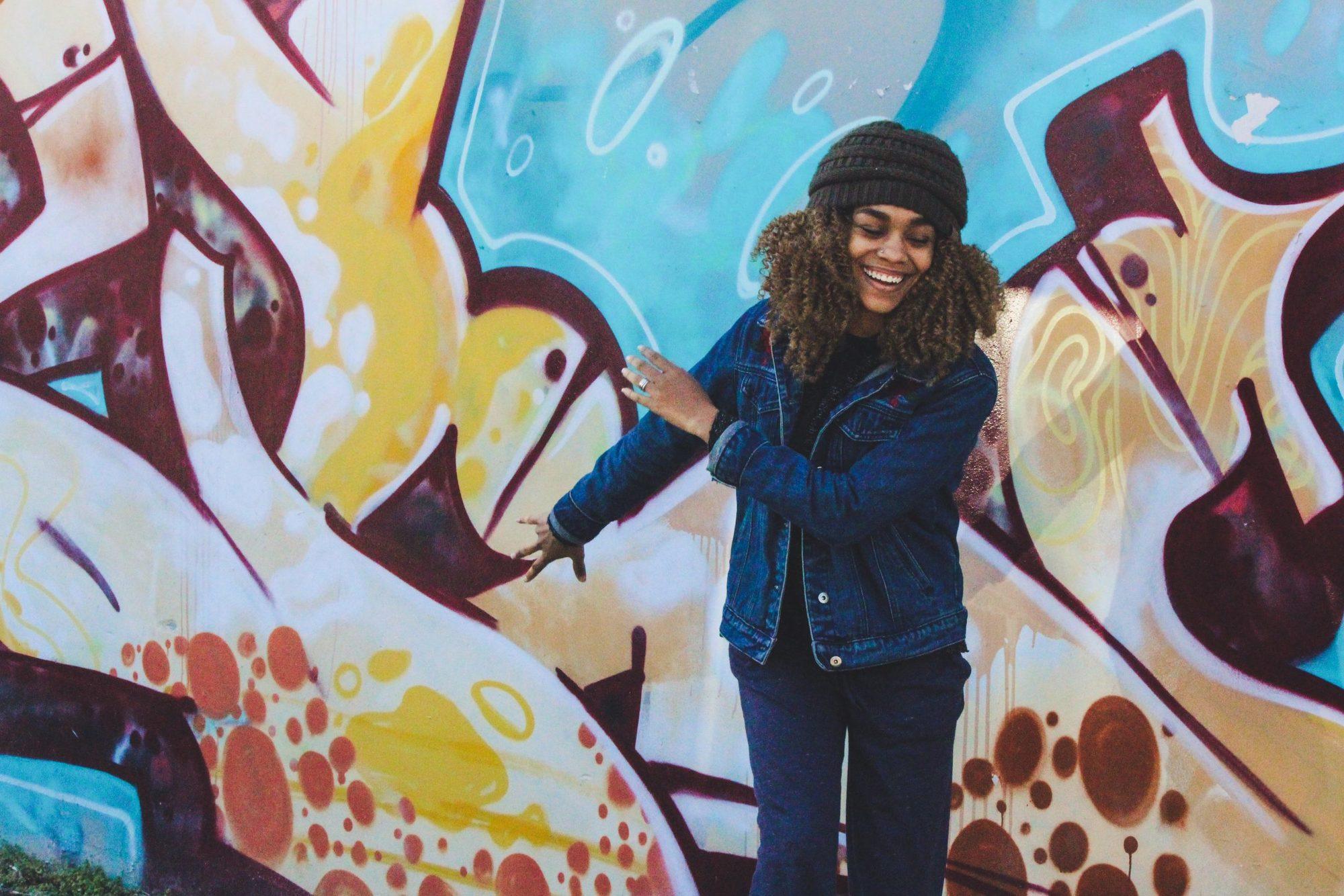Why You Should Celebrate Black Joy on Juneteenth and Every Day
Black joy is an act of resistance against systems of oppression. Here's why celebrating Black joy is important – especially during Juneteenth.

Ann-Katherine taught U.S. History, World History, Black Literature, and American Literature in Chicago for 10th and 11th-graders. As a member of the Diverse and Learner Ready steering committee for Illinois State Board of Education, she’s written state standards to cement a commitment to Culturally Responsive classroom practices. Ann-Katherine received Diversity Teacher of the Year in 2018 and 2019 and was a 2018 iHeartRadio Teacher of the Year finalist. As a minority teacher, Ann-Katherine is committed to transforming the high school experience by crafting responsive curriculum and empowering teachers to bring that curriculum to life.
Uplifting Black Joy, in the midst of a revolution, takes me to the core of what it means to be Black in America, now and across our history. America, you give us scraps, we give you a masterful quilt. You give us your dying soil, we give you the stability of an agricultural economy. You give us hardship, we give you creativity. You make us work long hours in the sun of the Deep South, we couple our work songs with African rhythm and give you the Blues. You give us segregation, we give you Historically Black Colleges and Universities. We give you Black Excellence.
Black people are tired. But we have a flame that—though it may flicker—never fully extinguishes. That light is our joy. That joy is an act of resistance against systems of oppression. Even on plantations, you could hear us rejoicing. In this original “melting pot”—full of people stolen and transported like goods, coming from African kingdoms, with hundreds of dialects and customs—you could hear rejoicing in the midst of oppression and inequity.
We hear that same rhythmic rejoicing in Gospel music. In true Black fashion, our ancestors took something forced onto them—Christianity, a colonial tool—and made it joyful. Missionaries forced Christianity onto millions of stolen and kidnapped Africans, over the course of 400+ years, I’d say we are experts at finding the silver lining that holds us together through the midst of storms. Resilience is what we do best. It’s hardwired into our DNA. Today, we see that same rejoicing in dances like “Savage” by Megan Thee Stallion, complete with elements of our ancestral past. In these eight counts, you’ll see stark similarities—in the rhythm and bounce—to the music of our ancestors.
On Juneteenth, We Choose to Celebrate Black Joy
If we break down the word “rejoice” into its parts—“re” and “joy”—we see the definition clearly: to be joyful again. Even as we work to dismantle systems of inequity, it’s important to rejoice in our Blackness. Although you may be tired and the fight may seem never-ending, it is important to celebrate your small wins along the way. Amplify your Black Joy. As you take to the streets to protest or educate your non-Black peers toward informed allyship, take a moment, and celebrate Black Joy. Whether that means finding support in your group chats, creating content to step up your TikTok game, or simply rolling in the grass, just do it. We are our ancestors’ wildest dreams and have so much to celebrate about Blackness.
And remember: Joy is contagious. It spreads like wildfire. If you start with yourself, you’ll reach others. Choose Black Joy, even if you don’t identify as Black. Make space for the thriving of Black art, Black creativity, and Black innovation. Take your appreciation and share it through conversations rooted in current events that touch Black communities. Reach far beyond your immediate radius and be part of global conversations that educate, inform, and celebrate.
Your Voice Matters
As a student, your voice has never been more important. Assess how racism is taught in your classes and your extracurriculars. Co-create spaces to reflect, concentrate, and problem-solve with like-minded students. Those conversations are challenging, but necessary. Look at this manual on uncomfortable conversations from Teaching Tolerance, let it inspire you, and share it with the adults in your life, so they are prepared to support you. Introduce anti-racism resources to your extracurriculars like Black Lives Matter in School and Overcoming Racism to assist in the journey of “addressing the cause of systemic racism and not the symptoms of educational inequity.” Take this implicit bias test offered through Teaching Tolerance to help allies and other students assess their daily and often unconscious patterns of behavior. Point your history teachers to The 1619 project so that even they can begin to make necessary edits to the tone and perspective they teach Black stories and Black history.
Beyond advocating for better-informed school resources, be sure to share Black Joy with your allies. Point them to resources like The Black Joy Project that seek to amplify how joy is an act of resistance. Share Color Positive, which showcases talented Black creatives, or Campaign Zero’s guide to building their own equity toolkit. From there, I’d hope your newly awakened ally finds publications like the Root and its Black Excellence column, which seeks to uplift the amazing steps Black Americans are taking to redefine what it means to be a part of the diaspora. Walk hand and hand at the upcoming Black Joy Parade, and listen to Spotify’s curated Black Lives Matter playlist for everything from tunes to play at the next cookout to ballads from the greats of Chaka Khan and Billie Holiday. Finally, dig into Netflix’s Black Lives Matter library for Black perspectives than address intersectionality within the culture.
Black Joy is worth celebrating and protecting. Black Joy is worth sharing and amplifying.
Celebrating Black Joy in the midst of a revolution is a form of resistance that’s rooted in celebration. Come find resources on how to amplify Black Joy this Juneteenth and share your celebrations with the Rethink Together Community. Make an account and join Ann-Katherine on the Rethink Together Forum!









